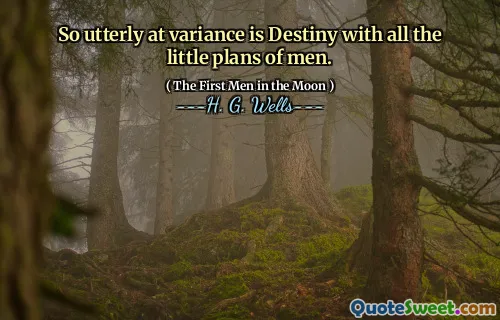
Over me, about me, closing in on me, embracing me ever nearer, was the Eternal, that which was before the beginning and that which triumphs over the end; that enormous void in which all light and life and being is but the thin and vanishing splendour of a falling star, the cold, the stillness, the silence, - the infinite and final Night of space.
In H.G. Wells' "The First Men in the Moon," the protagonist experiences a profound moment of reflection while contemplating the vastness of the universe. This moment reveals a sense of insignificance in the face of the Eternal, representing a timeless force that exists beyond creation and destruction. The imagery evokes a feeling of being enveloped by the infinite void, highlighting the transience of existence compared to the enormity of space.
The description emphasizes the contrast between the fleeting brightness of life, akin to a falling star, and the overarching serenity of the void that surrounds it. The eternal night symbolizes both an awe-inspiring and daunting aspect of reality, reminding the reader of the ultimate stillness and silence that prevails in the cosmos. Through this narrative, Wells invites contemplation on the nature of existence and humanity's place within the grand scheme of the universe.











